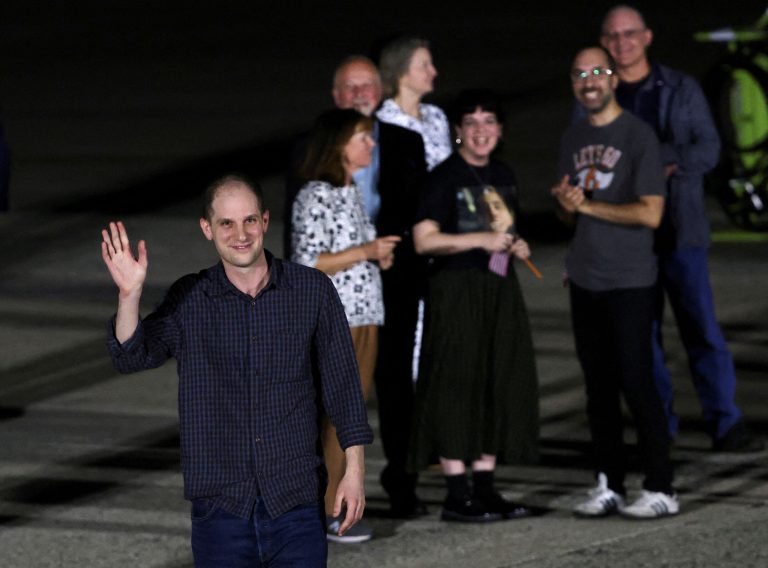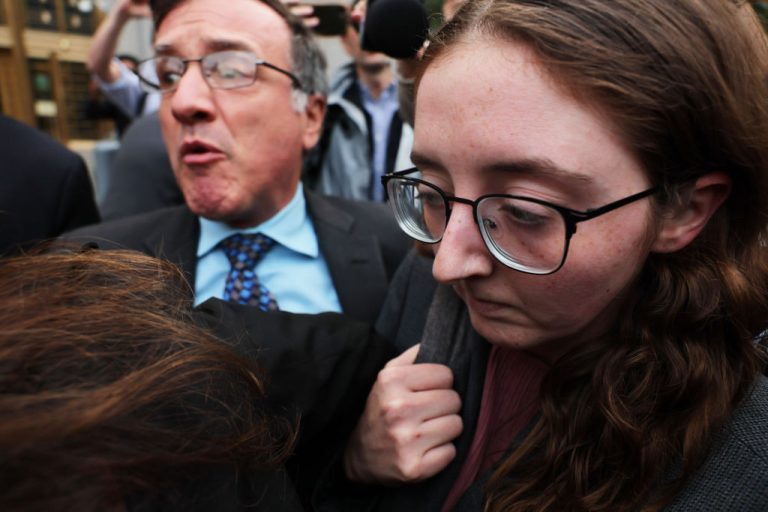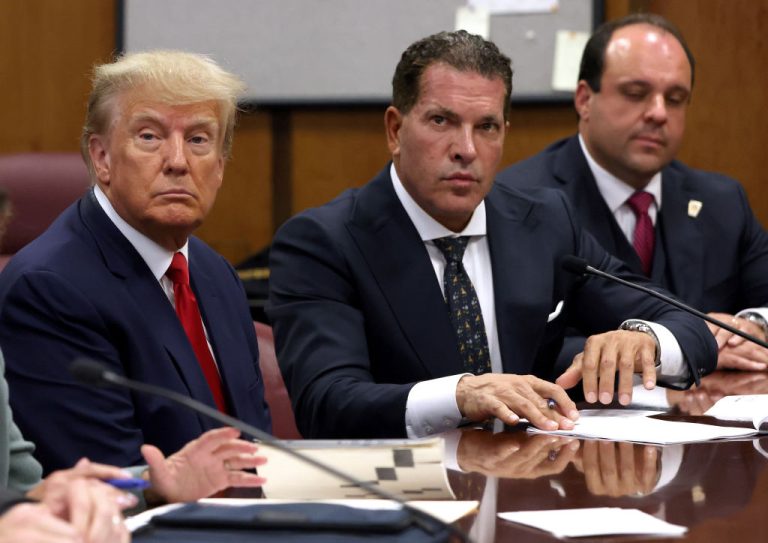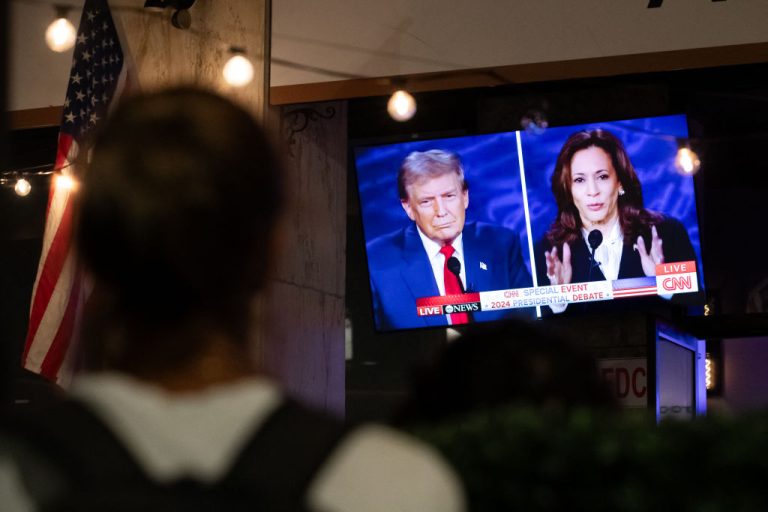U.S. journalist Evan Gershkovich and former U.S. Marine Paul Whelan returned to the United States on Tuesday, Aug. 2, after being freed from Russian detention as part of a major prisoner swap.
It was the biggest prisoner exchange between the U.S. and Russia since the fall of the Soviet Union, to which Russia is a successor state, in 1991.
The White House said it negotiated the trade with Russia, Germany and three other countries. The deal, worked on in secrecy for more than a year, involved 24 prisoners.
- Russia Detains Two US Citizens, Including American Soldier
- Yellen Warns German Banks to Comply With US Sanctions on Russia
U.S. President Joe Biden hailed the deal as “a feat of diplomacy and friendship” and praised Washington’s allies for their “bold and brave decisions.”
Biden and Vice President Kamala Harris greeted freed Americans Gershkovich, Whelan, and journalist Alsu Kurmasheva as they arrived at Joint Base Andrews in Maryland shortly before midnight (0400 GMT).
Success
You are now signed up for our newsletter
Success
Check your email to complete sign up
The president took off his lapel pin and gave it to Whelan as he got off the Bombardier Global 7500 aircraft.
Kamala Harris praised Biden’s leadership for bringing together the complex prisoner swap.
Russian President Vladimir Putin met the prisoners returning to Russia on their arrival in Moscow, saying they would be given state awards.
‘Dangerous message’
The multi-country deal appeared to be a one-time exchange that does not reset the otherwise antagonistic U.S.-Russia relationship.
Ties have deteriorated sharply since Russia invaded Ukraine on 24 February 2022.
U.S. deputy national security adviser Jon Finer said Washington-Moscow ties remain “in a very difficult place” despite the swap. “There was no trust involved in this relationship or negotiation,” Finer told broadcaster CNN.
Critics said freeing Russians convicted of serious crimes could encourage more hostage-taking by U.S. foes.
Former U.S. President Donald Trump, who is running as the Republican presidential candidate this November, asked whether “murderers, killers, or thugs” were released. “Just curious because we never make good deals, at anything, but especially hostage swaps,” the presidential nominee said on social media.
Belarus, Norway, Poland, and Slovenia also participated in the deal. Turkey coordinated the exchange.
The last major exchange between the United States and Russia, in 2010, involved 14 prisoners.
The two countries had a high-profile exchange in December 2022, swapping U.S. basketball star Brittney Griner — sentenced to nine years for vape cartridges containing cannabis oil in her luggage — for arms dealer Viktor Bout, who was serving a 25-year sentence.
Gershkovich, a Wall Street Journal reporter, was accused of collecting sensitive military information for the CIA. He and the paper denied the accusations.
Whelan, the former marine, was serving a 16-year sentence in a Russian penal colony on espionage charges that he denied.
Rico Krieger, a German, had been sentenced to death in Belarus on terrorism charges, but was pardoned by President Alexander Lukashenko, Putin’s close ally.
Kurmasheva, a Russian-American journalist sentenced to 6-1/2 years in prison on July 19, the same day as Gershkovich, as well as Kara-Murza, who was serving 25 years for treason after saying Putin was bombing Ukrainian homes, hospitals and schools.
Released with them were human rights activist Oleg Orlov and Russian opposition politician Ilya Yashin. Many of those freed had worked with Alexei Navalny.
Alexei Navalny, a Russian opposition leader and anti-corruption activist, died on February 16, 2024, at the age of 47, while serving a 19-year sentence in a penal colony in Kharp, Yamalo-Nenets region, Russia.
Before his death, Navalny was meant to have been part of the exchange, said Biden’s national security adviser, Jake Sullivan.
Reuters contributed to this report.







